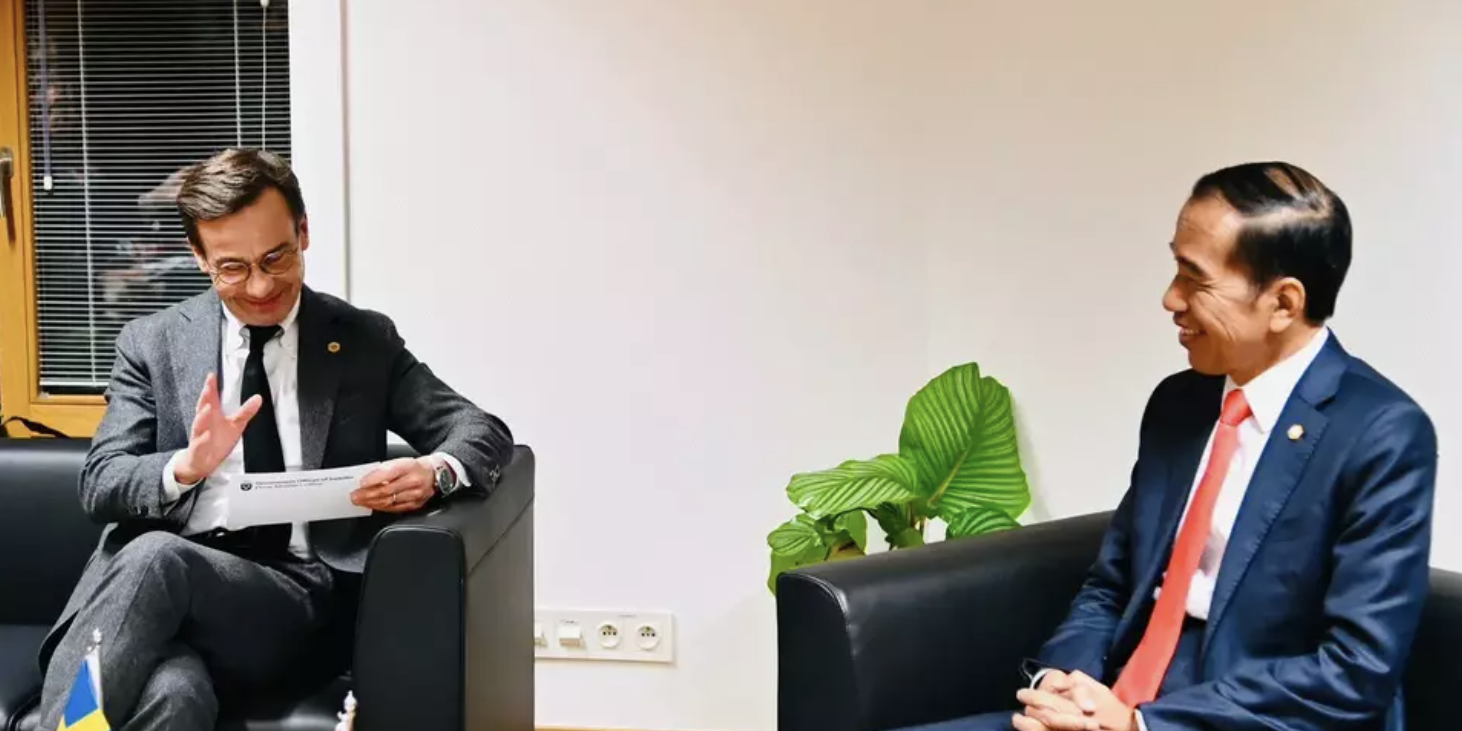Jakarta. Swedish Ambassador to Indonesia Daniel Blockert recently said that Stockholm would like to import more goods from Jakarta.
Indonesia mainly exports goods such as palm oil and leather footwear to Sweden, according to the Observatory of Economic Complexity (OEC). Trade Ministry data shows that Indonesia is importing more than it exports to Sweden, putting Jakarta in a constant deficit worth hundreds of millions of American dollars over the past few years.
“We want to increase Indonesian exports to Sweden as well. It should go in both directions,” Blockert told the Jakarta Globe on the sidelines of the recent 2023 Sweden-Indonesia Sustainability Partnership conference in Jakarta.
“We are already importing quite a lot of agricultural products [from Indonesia]. I think there is potential to widen that and make it more beneficial for both parties,” Blockert said.
The OEC reported that palm oil became Indonesia’s top export to Sweden in 2021. Indonesia’s palm oil exports were worth $58.9 million that year. Followed by leather footwear ($16.3 million) and seats ($12.5 million). The OEC data puts delivery trucks ($49.5 million), dissolving grades of chemical wood pulp ($46.7 million), and steam turbines ($28.6 million) as Indonesia’s largest Swedish imported goods that year.
According to the Trade Ministry, Indonesia-Sweden bilateral trade grew from $801.4 million in 2021 to $873.7 million the following year. Jakarta’s deficit with Sweden totaled $319.3 million in 2021, which then rose to $367 million in 2022.
Blockert also commented on the ongoing negotiations of the Indonesia-European Union (EU) Comprehensive Economic Partnership Agreement (CEPA). Not long ago, Chief Economic Affairs Minister Airlangga Hartarto said he hoped both sides could substantially wrap up the negotiations ahead of the election. Indonesia’s presidential election will take place in February, while millions of Europeans will cast their ballots for the members of the EU Parliament in June.
Blockert said that while he hoped to see the Indonesia-EU CEPA as soon as possible, he doubted that both sides could get it done before the election.
“From what I understand, and I’m not following in detail, there are still issues left that we have to resolve. I think it is not likely we will do it [finish the Indonesia-EU CEPA negotiations] before the elections. I hope so, but I don’t think so. But a free trade agreement will be extremely beneficial for both parties,” Blockert said.
Source: jakartaglobe.id
Disclaimer
This article may contain copyrighted material, the use of which may not have been pre-authorized by the copyright owner. This material is made available for the purpose of giving information and knowledge. The material contained on the Astra Agro website distributed without profit. If you are interested in using copyrighted material from this material for any reason that goes beyond ‘fair use’, you must first obtain permission from the original source.










